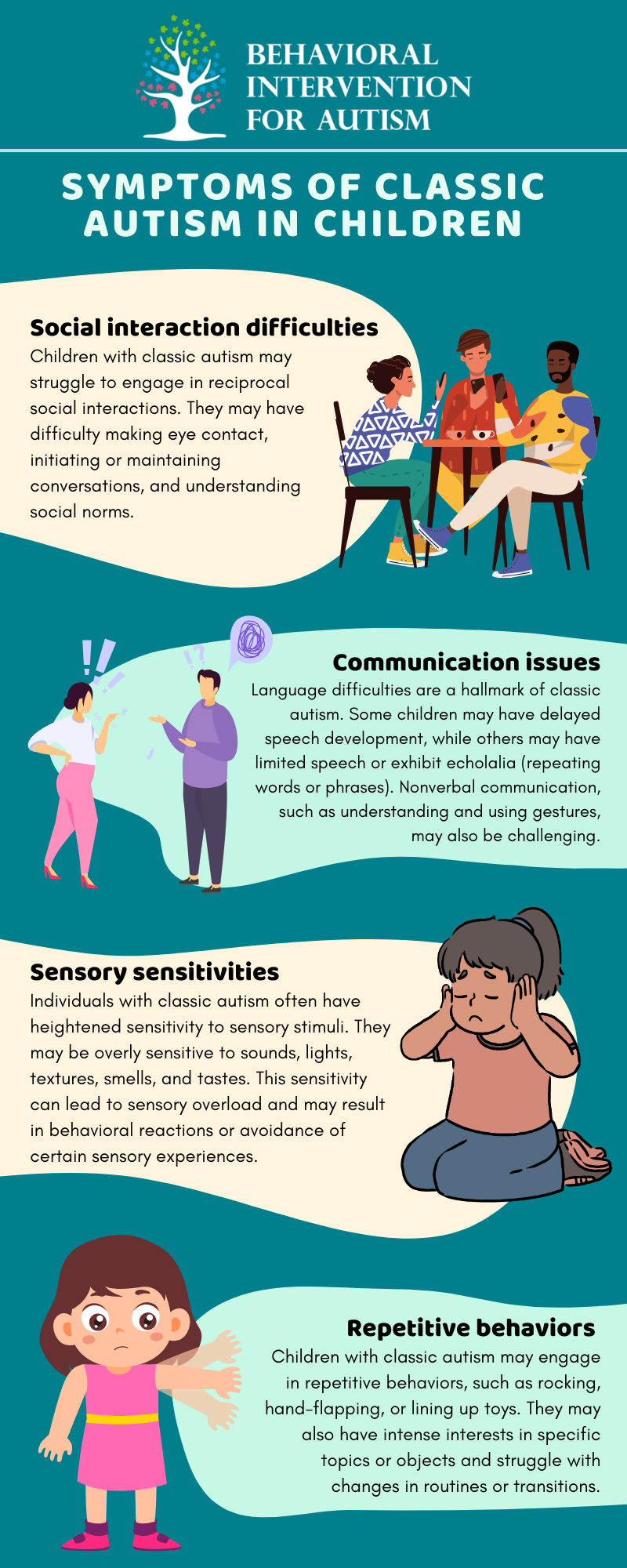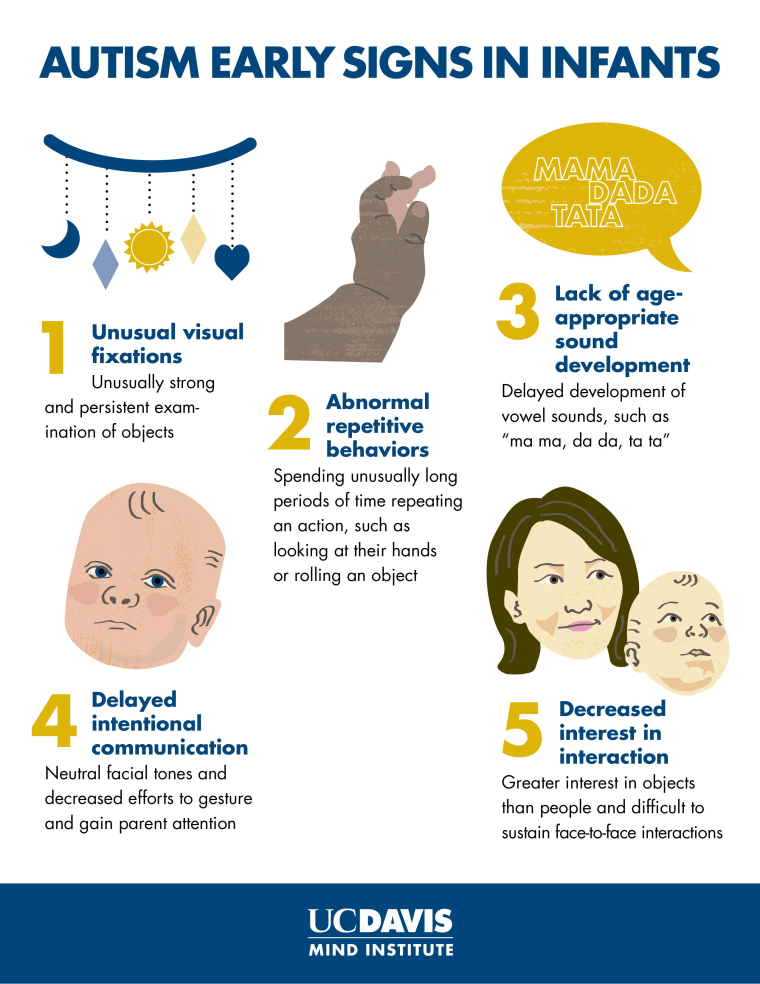Can Autism Spectrum Therapies help with developing independence in teens with ASD?
Can Autism Spectrum Therapies help with developing independence in teens with ASD?
Blog Article
Comprehending the Impact of Behavioral Autism on Daily Life and Social Interactions
You might not realize just how deeply behavioral autism affects everyday life and social interactions. People on the range commonly browse a world loaded with interaction obstacles and sensory overload. These challenges can lead to irritation and isolation, impacting their relationships and general wellness.
Specifying Behavior Autism and Its Qualities
Behavior autism, frequently described as autism range disorder (ASD), encompasses a variety of conditions characterized by challenges in social interaction, communication, and recurring behaviors. You may see that individuals with ASD often battle to translate social signs, which can bring about misunderstandings in conversations. They might locate it difficult to develop eye call or engage in small talk, making social scenarios feel frustrating.
Interaction troubles can manifest in various ways, from delayed speech growth to a choice for using fewer words. By acknowledging these qualities, you can foster a setting that promotes approval and motivates reliable communication, helping people with autism grow in their day-to-day interactions.
The Spectrum of Autism: Comprehending Irregularity in Behavior
Autism spectrum disorder (ASD) isn't a one-size-fits-all medical diagnosis; it differs commonly among individuals. You may see that some people with ASD exhibit moderate symptoms, while others might encounter a lot more significant difficulties. This variability can show up in habits, interests, and sensory sensitivities. You may encounter individuals who are highly verbal and involve quickly in conversations, while others could choose solitary activities or interact non-verbally.
In addition, the way people with ASD reply to sensory input can differ substantially; some may be overwhelmed by loud noises or intense lights, whereas others thrive in stimulating atmospheres. The range additionally includes differences in social interactions; some individuals may battle to translate social signs, while others browse social settings with family member simplicity. Comprehending this irregularity is essential, as it aids you appreciate everyone's unique experience and dressmaker assistance to their details needs, promoting a more comprehensive environment for everybody.
Communication Obstacles Encountered by People With Autism
When you interact with people on the autism range, you might see their special communication difficulties. They commonly face troubles with both spoken and nonverbal cues, which can influence their social interactions. Understanding these obstacles is important for cultivating much better connections and support.

Verbal Interaction Problems
Several people on the autism spectrum experience verbal communication troubles that can substantially impact their daily interactions. Your tone, volume, or rate might not straighten with social assumptions, creating others to misunderstand your intents. Acknowledging these obstacles can help you and your assistance network create approaches to boost interaction and promote far better links with others in your day-to-day life.
Nonverbal Interaction Obstacles
Verbal communication isn't the only challenge individuals on the autism spectrum face; nonverbal communication barriers can be simply as significant. You might discover it hard to interpret body language, face expressions, and eye contact, which are essential for reliable interaction. These obstacles can cause misunderstandings or misinterpretations of social cues, making interactions really feel complicated or frustrating. You might struggle to express your own feelings via nonverbal ways, leaving others uncertain of your intentions or feelings. This detach can develop sensations of seclusion and stress. Recognizing these barriers is crucial for promoting understanding and compassion in your communications. By addressing nonverbal communication, you can find strategies to improve your social experiences and boost your overall lifestyle.
Social Interaction Influences
Social interactions can typically feel frustrating because of the special communication challenges dealt with by individuals with autism. You may battle with analyzing social signs, making it difficult to comprehend sarcasm or body movement. This can result in misunderstandings or uncomfortable moments in conversations. In addition, initiating and keeping discussions may really feel tough, creating stress and anxiety in social circumstances. You might like structured atmospheres, making spontaneous communications uncomfortable. It's also typical to experience problem in taking part in tiny talk, which can impede forming brand-new friendships. Recognizing these difficulties can assist you locate techniques to boost communication, such as practicing social abilities in safe setups or utilizing visual aids - Aba Therapist Near Me. Recognizing your demands allows you to navigate social communications with better confidence and simplicity.
Social Interaction and Relationship Structure in Autism
While structure connections can be challenging for individuals with autism, understanding their unique perspectives and interaction designs can foster meaningful links. You may discover that many individuals on the range prefer direct interaction and might battle with social signs or small talk. By being simple in your interactions, you can assist produce an environment where they feel comfortable.
Make the effort to observe and listen how they reveal themselves. This understanding can direct you in steering discussions better. Engaging in shared passions can also function as a bridge to much deeper connections. Whether it's a hobby, a favored program, or a mutual passion, these common strings can open doors to friendship.
Every Day Life Routine: Browsing Challenges and Strategies
Navigating every day life regimens can be especially testing for people with autism, especially when unanticipated changes happen. You might find comfort in having a structured schedule, as it aids you expect what's following. It's normal to really feel overloaded or nervous when interruptions take place. To browse these obstacles, take into consideration implementing aesthetic timetables or lists. These devices can provide quality and reassurance.
Establishing a regimen that includes sensory breaks can additionally be useful. You can intend time-outs throughout your day to recharge. It's vital to connect with those around you, allowing them know your choices and needs. This assists develop an understanding atmosphere.
Finally, method mindfulness strategies to manage anxiety and stress and anxiety. Simple breathing workouts or grounding techniques can make a significant difference. By including these techniques, you can improve your daily regimen and minimize interruptions, making life feel more workable.
Staminas and Abilities of People on the Autism Spectrum
Understanding day-to-day life routines is just one facet of the autism experience. Lots of individuals on the autism spectrum have remarkable strengths and abilities that set them apart. You may find that your interest to information is exceptional, enabling you to excel in jobs that need accuracy and emphasis. Your capability to think outside package can lead to innovative services in various situations.
In addition, your memory abilities frequently shine, particularly in locations of interest. Autism Therapist. This flair for keeping info can make you a beneficial resource in fields like science, art, or innovation. You may likewise show strong aesthetic thinking, allowing you to envision complex principles and address issues creatively
Furthermore, your special point of view on the world can promote empathy and understanding in others, enhancing find social communications. Accepting these strengths not only increases your self-confidence yet also helps others value the diverse skills you offer the table.
Creating Comprehensive Environments for Individuals With Autism
Creating comprehensive environments for people with autism begins with making sensory-friendly rooms that deal with their distinct requirements. You can additionally foster opportunities for social interaction, assisting to construct connections and friendships. By making these adjustments, you'll contribute to from this source an extra inviting ambience for everyone.
Designing Sensory-Friendly Spaces
While making sensory-friendly areas, it's crucial to mirror on the distinct needs of people with autism. Incorporate peaceful areas where individuals can recharge and pull back when bewildered. Consist of aesthetic schedules or clear signs to aid individuals navigate the area with confidence.
Promoting Social Communication Opportunities
Creating sensory-friendly areas not just addresses individual comfort but additionally establishes the phase for purposeful social interactions among individuals with autism. Encourage peer mentoring, matching individuals with autism with supportive peers who can direct them through social scenarios. By carrying out these methods, you can boost social possibilities, assisting individuals with autism develop friendships and reinforce their social skills in a safe, welcoming setting.

Often Asked Concerns
How Can Friends Assistance A Person With Behavioral Autism?
You can sustain a close friend with behavior autism by holding your horses, paying attention proactively, and appreciating their borders. Participate in tasks they delight in, connect honestly, and create a comfortable environment where they really feel valued and recognized.
What Resources Are Offered for Moms And Dads of Kid With Autism?
You can discover different sources for parents of children with autism, consisting of support system, instructional web sites, and local community services. Getting in touch with other moms and dads can also provide beneficial understandings and shared experiences to assist navigate difficulties.
Can Behavioral Autism Modification Gradually?

Yes, behavior autism can transform gradually. You could see changes in interaction, social skills, and behavior as your youngster expands. Early treatment and assistance often play vital duties in these developing modifications.
How Do Sensory Sensitivities Affect Life?
Sensory level of sensitivities can make day-to-day experiences frustrating. You might battle with loud sounds or bright lights, bring about stress or evasion. Discovering settings that accommodate your needs can greatly boost your comfort and general every day life.
What Are Typical Misconceptions About Behavioral Autism?
You may believe behavior autism only affects communication abilities, yet it's even more facility. Many assume individuals lack empathy or knowledge, which isn't true. Understanding these misunderstandings helps foster approval and assistance for those on the range.
Behavior autism, usually referred to as autism spectrum disorder (ASD), incorporates a range of conditions characterized by obstacles in social interaction, communication, and repetitive actions.Social communications can often feel overwhelming due to the unique interaction difficulties encountered by people with autism.Creating sensory-friendly spaces not only addresses private convenience yet likewise establishes the stage for significant social communications among individuals with autism. Motivate peer mentoring, matching individuals with autism with supportive peers who can assist them with social circumstances. By carrying out these strategies, you can boost social possibilities, aiding people with autism construct relationships and strengthen Visit Website their social skills in a risk-free, welcoming environment.
Report this page